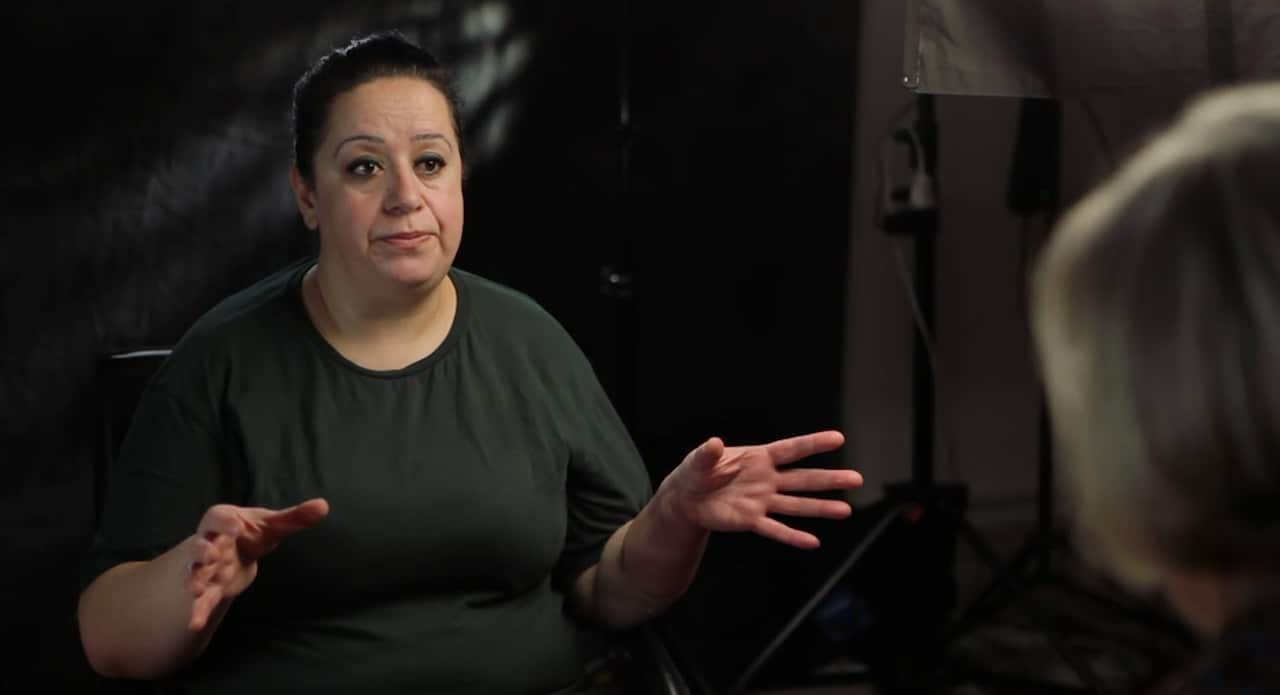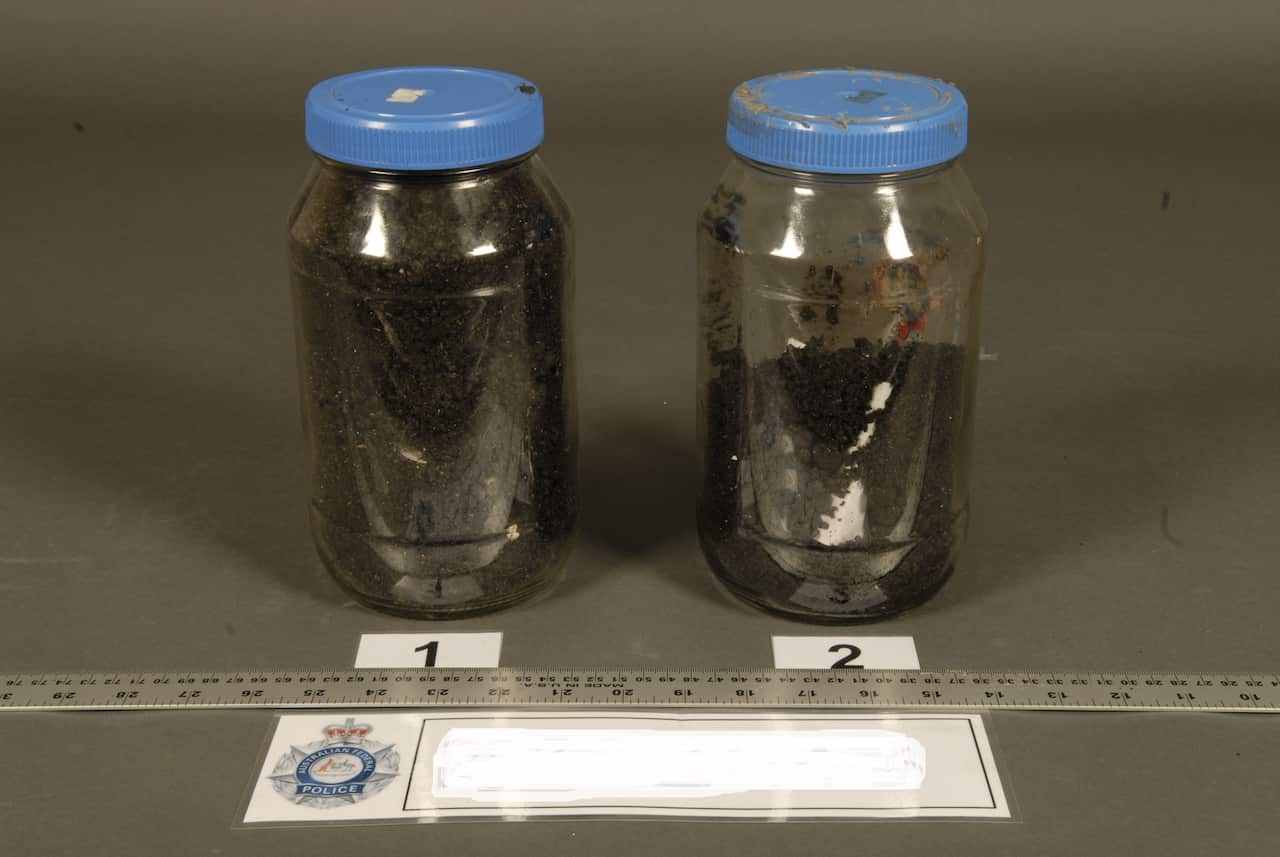Name: Zaynab*
Age: 39
Current conviction:
1 count: Attempt to possess a commercial quantity of an unlawfully imported border controlled drug, namely opium
Sentence: 12 years, 6 months
Non-parole period: 7 years, 6 months
Zaynab was born in Lebanon, in the middle of a 15-year political and religious sectarian civil war. She says the conflict began when she started school, and that her education did not go past Year 4.
Despite the conditions, Zaynab says she was “the princess” in the family. “I'm the last one in the family … like anything I want, my mum and dad did for me. I sleep between my mum and dad till basically I come to Australia [at 17].”
“So were you little girl who could do no wrong?,” asks Insight’s Jenny Brockie.
“Basically, yeah.”
Sitting in Silverwater Women’s Correctional Centre, Zaynab’s dark hair is pulled up above the green collar of her uniform and clipped in place. She has sourced eye-makeup from somewhere, which sits on her upper lids above large brown eyes. Thin eyebrows frame a fuller face. She tells her story to Jenny Brockie as part of Insight’s two-part special looking at life inside a women’s maximum security prison.

Before she turned 18, she married her cousin. He lived in Australia and she shifted her life from a newly-peaceful Lebanon to suburban NSW. A year or two later, she gave birth to a son. She told Jenny Brockie that her other children died in infancy.
“When I married the second husband I have three kids from him and three of them pass away.”
“How old were they when they passed away?” asks Brockie.
“They like oh, one three months and a half, one nearly four months, yeah,” she says.
“Like I remember I have the baby and then when they take the machine off, maybe after that one hour, the baby pass away, that's the first one. Yeah, but after the first one I don't know, maybe because you go in shock.”
“But the same thing happened with each one?” asks Brockie.
“Yeah … Nothing worser than losing your kids, nothing in life,” she says.
Zaynab did not have a job and earned a single mother pension, she says, but claims a couple she knew offered for her to sell goods out of her house. “His wife they used to say to me look, we feel sorry for you, we really feel sorry for you, we want you to make some money and they start giving me whatever what they get, like that kind of food,” she says. “I start selling to friends and family.”
Zaynab claims that the couple brought a shipment to her brother’s warehouse, and her brother asked her to help out with it.
Jars of tomato paste were part of the cargo. They were filled with 175 kg of opium - a quantity with a street value of over $5 million.

Later, one shipment would arrive with a surprise: the jars were not filled with opium, but with Play Doh.
Police had intercepted the delivery and replaced the drugs. “My co-worker, he sit down on the floor and start broken jars and talk on the phone to his country with other people,” remembers Zaynab. “And then he said to me, ‘That's not what I'm expecting’.” He asked her to call her brother, who arrived at the house, followed shortly afterwards by the police.
“When my brother came, that's when I know 100 percent that's the drugs. Like that's the first time in my life I see drugs, I don't know the drugs should be white colour or whatever,” claims Zaynab.
Five and a half years since pleading guilty to her involvement in importing commercial quantities of narcotics, she denies full culpability for her crime.
“I never said like 100 per cent I'm innocent because I'm not a kid and I have a brain, I can decide what's right and what's wrong,” she says. “But at the same time, if I don't trust people maybe I didn't come jail.”
“I wish to everybody outside and that's why I'm doing the interview with you. I will say to everybody don't follow family, don't follow brothers, don't follow cousins, don't follow nobody, only yourself.”
She harbours a deep distrust of men, which has increased since entering prison.
“Anything man say I don't believe it any more. I don't believe it,” says tells Insight. “When I came here I hate them more. I hate them more.”
“Why?” questions Brockie.
“Because how much you feel woman hurt here because of men. Ninety per cent of woman here because of men.”
“How can you say that?” asks Brockie. “How can you say that 90 percent of the women here because of men, they've made choices to do all what they do?
“I understand they make choices but woman fall in love, woman have broken, woman, woman innocent. Woman different. Men they never treat woman like a human being.”
Zaynab’s sentence expires in 2023 and will be eligible for parole in late 2018.
“I know I plead guilty because they scare me in the Court, but you know how long I stay in remand? Three years and seven months and 23 days. In the end people in jail, they start telling me: you part the furniture in jail, you never going to go home.”
Hear Zaynab's full story on Lockdown - Insight's two-part special inside a women's maximum security prison. Both episodes can be watched below:
[videocard video="793332291530"]
[videocard video="802313795604"]
*Name has been changed
Insight is Australia's leading forum for debate and powerful first-person stories offering a unique perspective on the way we live. Read more about Insight
Have a story or comment? Contact Us






